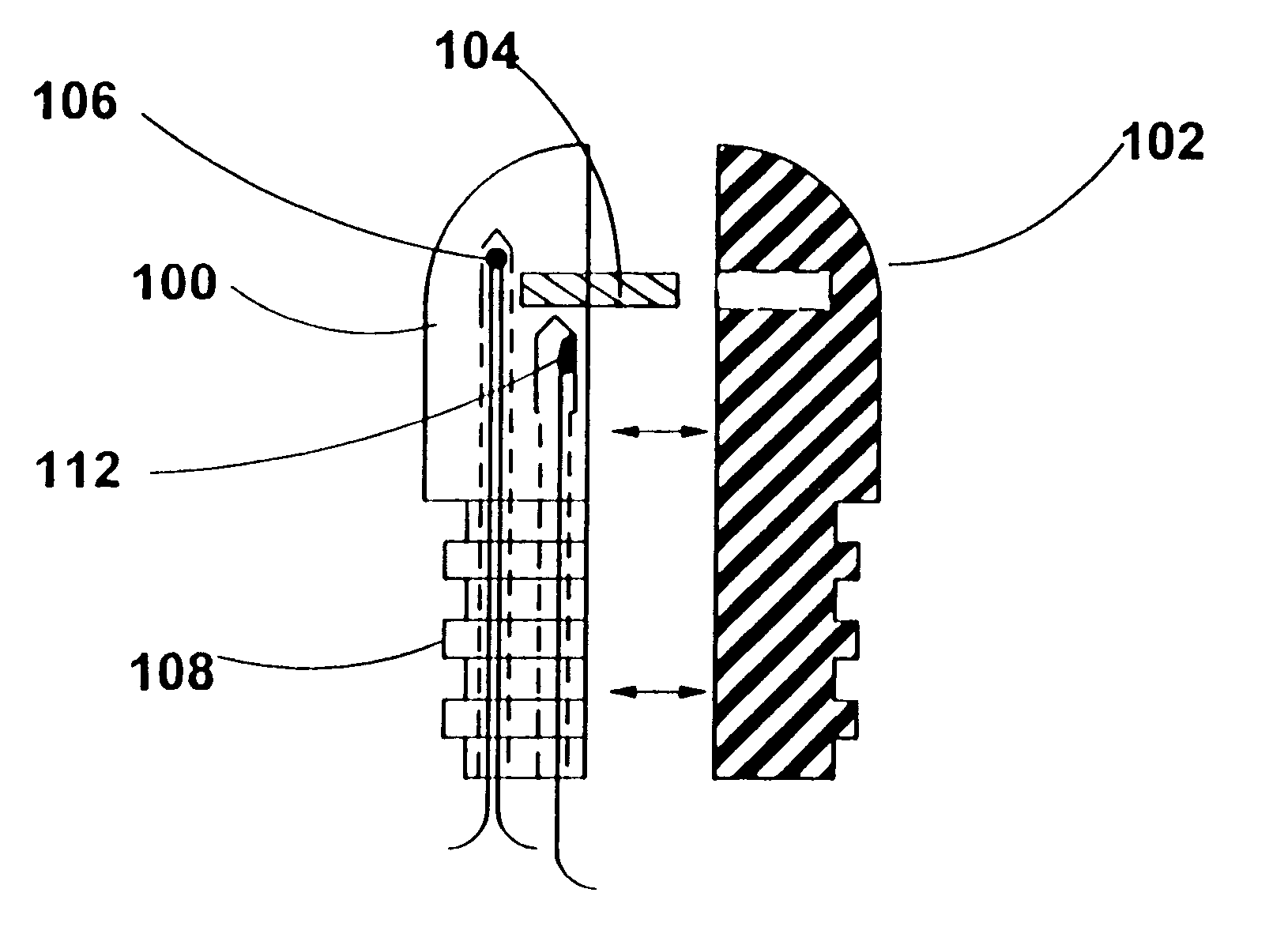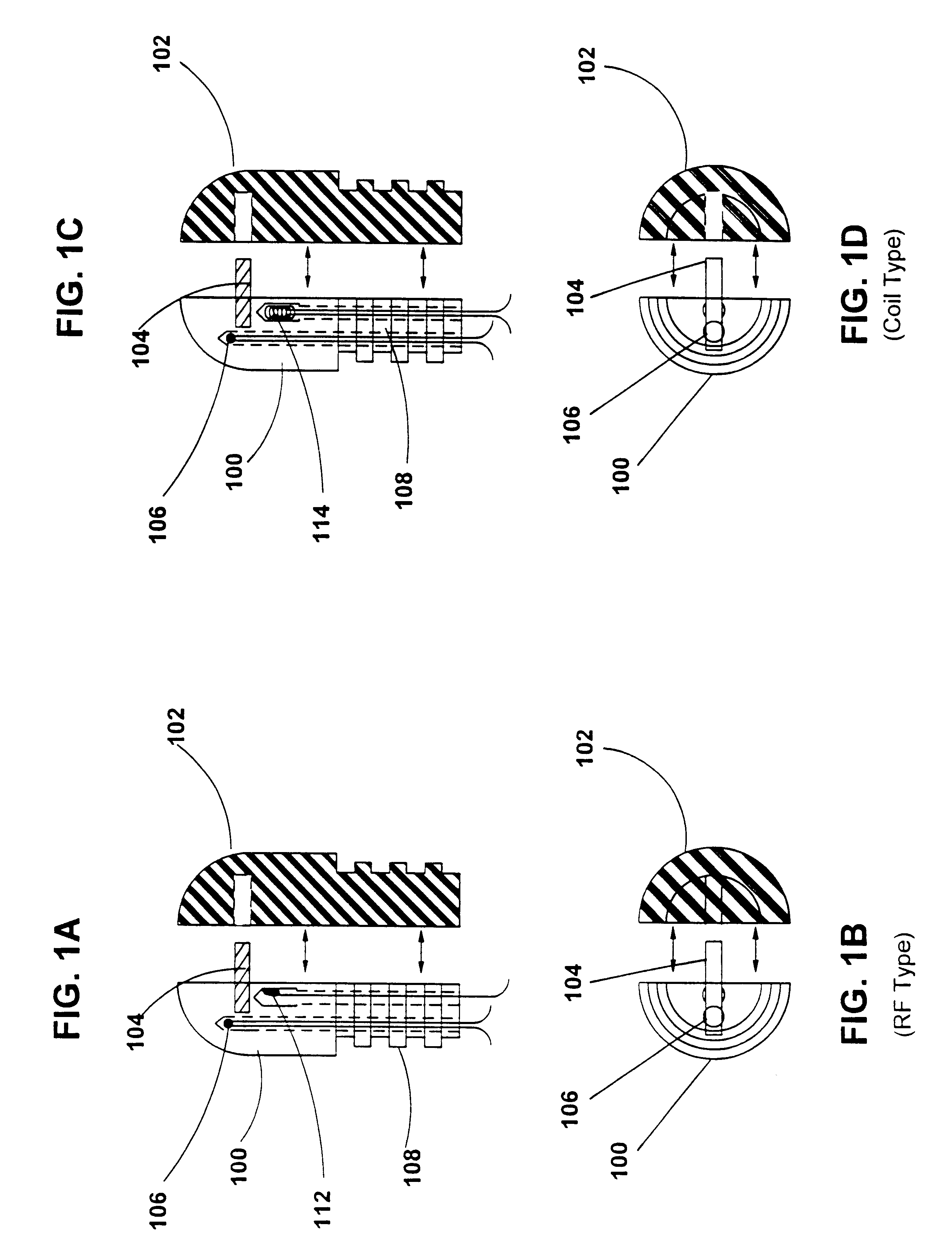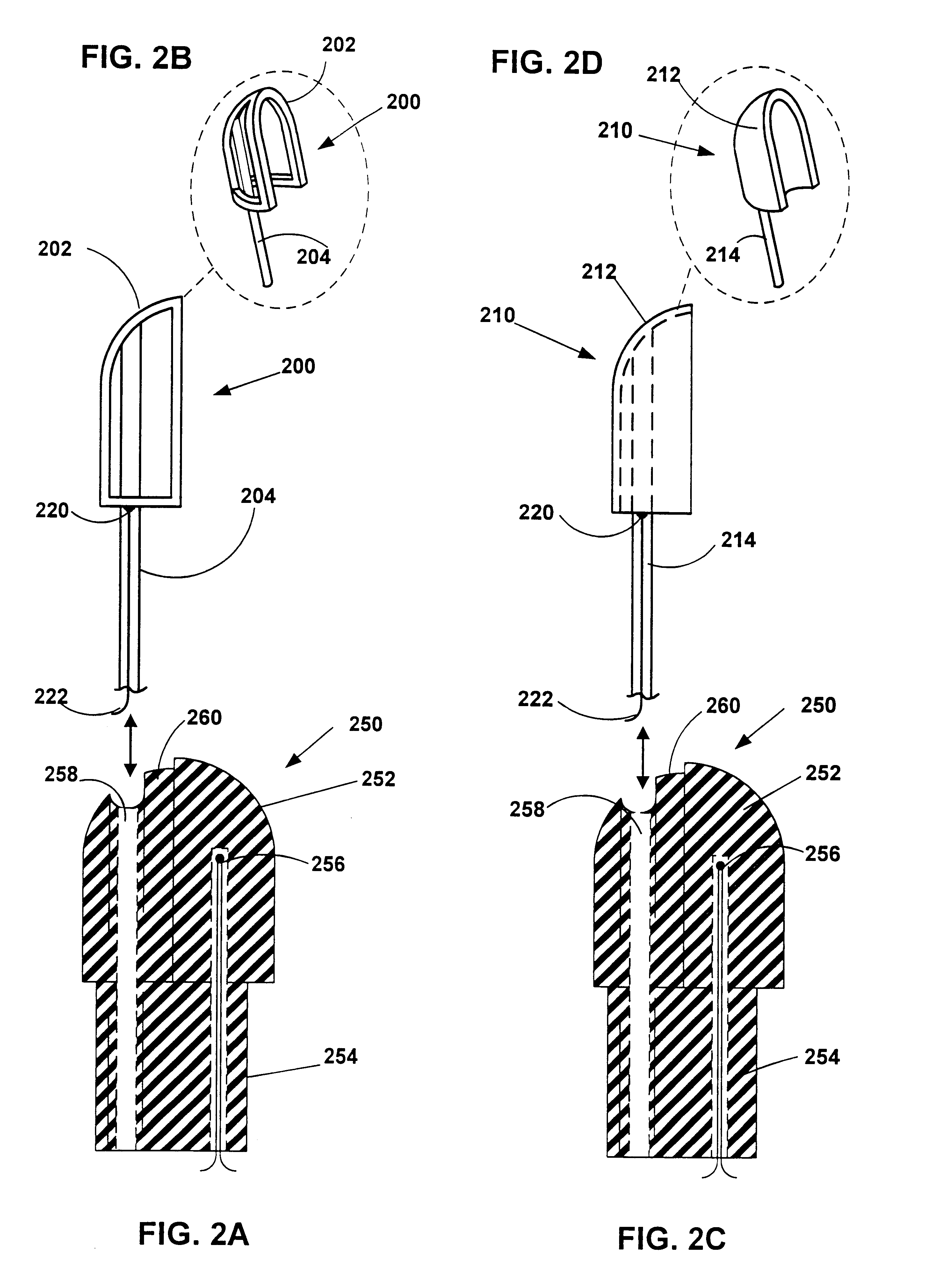Method and apparatus for applying thermal energy to tissue asymmetrically
a technology of thermal energy and tissue, applied in the field of percutaneous surgery, can solve the problems of not having the capability of delivering heat to only one side of the tip, adverse effects on otherwise healthy tissue, and electrode tips of the prior art not being designed
- Summary
- Abstract
- Description
- Claims
- Application Information
AI Technical Summary
Problems solved by technology
Method used
Image
Examples
Embodiment Construction
The present invention and the various features and advantageous details thereof are explained more fully with reference to the nonlimiting embodiments that are illustrated in the accompanying drawings and detailed in the following description. Descriptions of well known components and processing techniques are omitted so as not to unnecessarily obscure the present invention in detail.
This invention applies to the area of applying thermal energy to tissue during surgery in many different aspects of the body. The invention is especially applicable in those areas of the body where there are specific sensitivities in the surgery being performed such that the prior art does not allow for adequate addressing of the therapeutic need while providing the needed safety element in those certain areas. The reason for that is due to the proximity of tissue which should not be heated next to tissue that is intended to be treated and heated.
FIGS. 1A-D and FIG. 2 show detailed views of alternate em...
PUM
 Login to View More
Login to View More Abstract
Description
Claims
Application Information
 Login to View More
Login to View More - R&D
- Intellectual Property
- Life Sciences
- Materials
- Tech Scout
- Unparalleled Data Quality
- Higher Quality Content
- 60% Fewer Hallucinations
Browse by: Latest US Patents, China's latest patents, Technical Efficacy Thesaurus, Application Domain, Technology Topic, Popular Technical Reports.
© 2025 PatSnap. All rights reserved.Legal|Privacy policy|Modern Slavery Act Transparency Statement|Sitemap|About US| Contact US: help@patsnap.com



